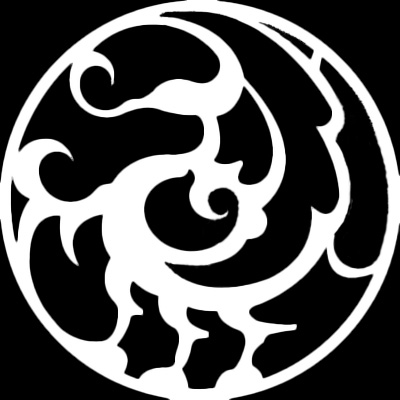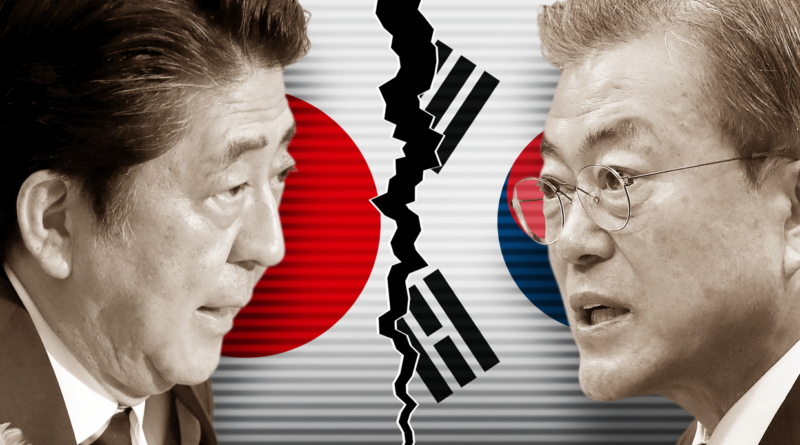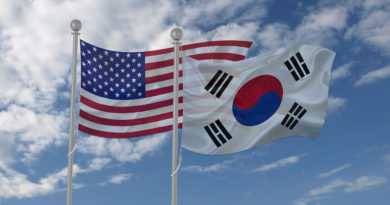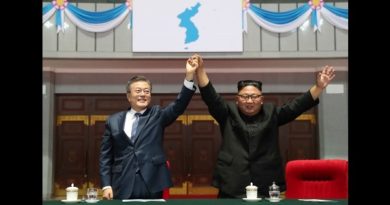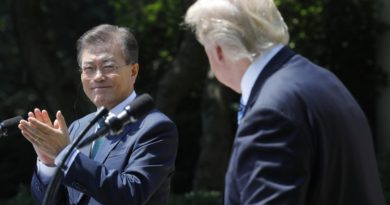Moon Jae In Fumbles Japan Relationship
I previously wrote that Japan banned the export of several high-tech components to the ROK, but this was a restriction and not a ban. Rather, Japan has removed preferential treatment for ROK companies importing chemical materials used in the manufacture of semiconductors and digital displays. These components may still be exported, but require government approval, which delays the process. And while the Moon Administration is attempting to lay the blame at the feet of Abe, this recent escalation is the consequence of Moon’s attempts to stoke nationalism to divert from his falling approval ratings.
How Did We Get Here?
Late last year, the Moon Administration dismantled the fund agreed to by the ROK and Japan to settle compensation for the so-called Comfort Women. This is an especially contentious issue as evidence indicates Koreans were complicit in the Comfort Women issue and Japan has apologized over fifty times between 1957 and 2015. Then, in December of 2018 a ROK destroyer locked its targeting radar on a Japanese ISR asset. The ROK also banned ships flying the Rising Sun (the official ensign of the Japanese Maritime Self Defense Force) from docking in Korean ports, despite the fact that Japanese ships have flown the flag when docking previously. In March, the Kyeonggi-do (the province that surround Seoul) local assembly proposed labeling all Japanese-made school products with a sticker reading, “This was produced by a Japanese company involved in war crimes.” Meanwhile, North Jeolla-do banned the provincial anthem due to the song-writers reported pro-Japan stance, and Bucheon removed a poet’s memorial for his links to the Japanese colonial era. Finally, the ROK seized the assets of Mitsubishi Heavy after ordering the company to compensate alleged forced-labor victims alongside Nippon Steel.
Japan’s Stance
As mentioned before, Japan has officially apologized for its actions during the Colonial Era over fifty times since the 1950s. Further, Japan entered into an agreement with the ROK in 1965 whereby Japan gave the ROK $800 million to resolve war-time property issues and individual claims for compensation. However, the ROK used most of these funds towards economic development. Also, the ROK renegged on the 2015 fund set up between Japan and the ROK to handle compensation towards so-called Comfort Women. Thus, it is understandable that Japan has grown weary of constant compensation and apologies without reciprocal good will from the Koreans. To be sure, Abe sees Moon’s gifts of cash and aid to the DPRK without any apologies or recognition by the DPRK of its actions in 1950.
To this end, last Friday Koichi Hagiuda, a senior member of the LDP, suggested that chemical exports to the ROK could end up in the North. Then, Abe indicated that given the ROK’s inability to abide by international agreements, the ROK cannot be trusted to abide by sanctions against the North. Interestingly, the DPRK propaganda outlet Tongil Sinbo referred to Japan’s export restrictions as shameless stating, “The Korean people and the international community have been consistently urging Japan to sincerely apologize and provide compensation for its past wrong-doings.” Of course, the Tongil Sinbo made no mention of the Korean people and international community urging the DPRK to apologize for both its past and current wrong-doings.
Korean Sanctions Violations
ROK Prime Minister Lee Nak Yon indicated that Abe’s comments regarding Korean sanctions violations are “risky.” I would concur; they are risky because they once again draw attention to the Moon Administration’s complicity in DPRK sanctions evasions. The UN PoE accused the ROK of violating sanctions by failing to report its export of petroleum products to the North. The ROK’s delay in revealing a ROK ship was involved in sanctions violations also raises concerns about the South Koreans’ commitment to the implementation of sanctions against the DPRK. And the ROK has suggested expanding the Outward Processing zone beyond Kaesong, including the entirety of the Peninsula with respect to its free trade agreements. So, while I haven’t seen any evidence that high-tech exports are making their way into the North, Abe’s statements that the ROK’s inability to abide by international agreements may reflect an inability to abide by international sanctions has merit.
Moving Forward
This recent flare-up in Japan-ROK relations is a direct result of President Trump’s inability to manage the trilateral relationship. A State Department spokesperson told Yonhap:
As an ally and friend to both Japan and the Republic of Korea, the United States believes that it is critical to ensure strong and close relationships between and among our three countries in the face of shared regional challenges, including those posed by the DPRK, as well as our other priorities in the Indo-Pacific and around the world. The United States is committed to strengthening further our trilateral cooperation with Japan and the Republic of Korea. We remain unified in pressuring North Korea to denuclearize.
Unfortunately, the three countries do not remain unified in pressuring North Korea to denuclearize. And Seoul’s inability to push the anti-American sentiment of the Roh Administration has resulted in whipping up anti-Japanese sentiment instead. Assistant Secretary of State for East Asian and Pacific Affairs David Stilwell will meet with senior Japanese officials from 11-14 July before visiting Seoul on 17 July. Additionally, elections for the Upper House of the Japanese Diet are set to be held on 21 July. Abe’s willingness, or lack thereof, to negotiate with Moon following these events will be telling for how the relationship moves forward.
